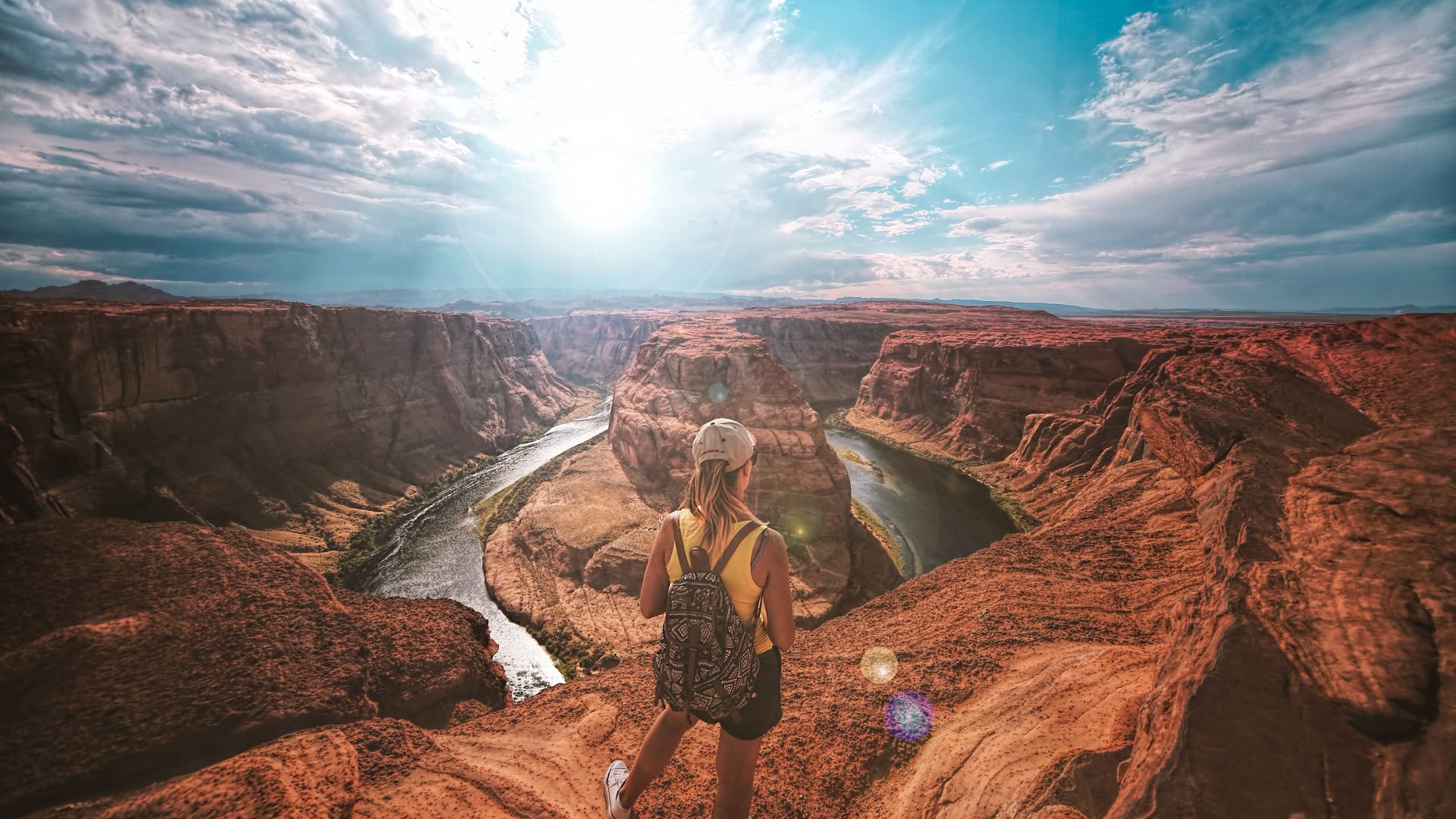
What makes a trip feel ‘once-in-a-lifetime?’ One survey found that seeing something that won’t be around in 10 years, or that you’ve always wanted to see, did the trick for many this year.


What makes a trip feel ‘once-in-a-lifetime?’ One survey found that seeing something that won’t be around in 10 years, or that you’ve always wanted to see, did the trick for many this year.
The first couple years of COVID-19-related lockdowns and travel restrictions left a lot of people with gnarly cases of cabin fever. So it makes sense that travelers are reporting relief, excitement, and fulfillment to be jet-setting over borders again in a poll commissioned by the travel company Exodus.
Before we dive into the findings, a word on the accuracy and usefulness of studies conducted by for-profit groups. They’re generally (but not always) conducted in good faith, but they’re also not exactly peer-reviewed or representative. That is to say, the final results are usually not entirely made up, but the methods of getting there—framing, asking leading questions, or omitting certain topics—might not hold up to third-party scrutiny, and there’s usually not any transparency around actual methodology (in scientific papers, the standard is usually to share raw data and the actual survey questions, which are not readily available for the study we’re looking at). And instead of aiming to minimize bias, the results come from a place with a definitive agenda. How travel is reported on and perceived by consumers matters a lot to travel companies, which is why they make studies to begin with.
That doesn’t mean they’re entirely useless, though. It’s just important to look at them as one point of view among many, and use them more as a jumping-off point to ask more questions rather than a source of definitive answers. And the results of this survey in particular lead to some interesting ideas about the value we are assigning to our travels and how we make our decisions about traveling.
The 2,000 survey respondents were all from the United States, and had all taken an international trip in the past year. On the whole, respondents seemed pretty happy about that: four in five said that the journey had been good for their soul and well-being. Analysts are calling this zeal for venturing abroad, “revenge travel,” a term that puts a name on the desire many seem to have to make up for lost time and experiences.
But the surveyed travelers weren’t pleased to be back on the move just because they’d been stuck at (or near) home for a couple of years. The survey found 57 percent categorized their trip as “once-in-a-lifetime,” although what exactly made it special varied.
One of the top-two reasons was, “used a travel agent, which took the stress out of traveling,” which is a good example of why these results should be taken with heaping spoonfuls of salt. While a travel agent can be helpful and worthwhile, it’s by no means necessary for an amazing trip and is also what the makers of the survey are selling.
But a handful of the other highly reported reasons seem like potentially interesting insights into broader trends of what people are prioritizing. The most common reason people said their trip was once-in-a-lifetime was because they saw someone or something that may not be there in 10 years, whether that’s an elderly relative or a landscape.
Psychological research pretty consistently finds that when someone does something that aligns with their values and beliefs, they report higher levels of satisfaction
Headlines about well-traveled landscapes and wonders threatened by climate change, like alpine glaciers, are increasingly common. But so far, there’s little evidence to suggest that that’s actually changing people’s behavior—yet. Dagmar Lund-Drlacher, professor of sustainable tourism management at Modul University Vienna, says that climate change’s impacts are being felt primarily when disasters and imminent dangers keep people from visiting a certain region.
“If the locations suffer repeated flooding, or glacier collapses, it will eventually impact tourism in that region,” Lund-Durlacher told German news outlet DW. “People are aware of the danger, but they don’t associate it with a specific region.”
And while travel, especially long-distance air travel, creates a lot of climate change-causing pollution, travel agent Luke Likes thinks there could be value to more people visiting sites threatened by climate change. “It’s something to see it in pictures but to see it in person has a different impact,” Likes told the New York Times. “It’s terrifying, honestly.”
A psychology paper published in the peer-reviewed journal Annals of Tourism Review looks at current travel behavior trends not as “revenge travel,” but as “post-traumatic tourism,” with the pandemic named a common trauma driving our behavior. The thinking goes that trauma can inspire positive growth (in addition to lingering harm) that consistently takes a few forms: openness to new life possibilities; changed priorities and a deeper appreciation of life; resilience; development of closer social relationships; and greater existential or spiritual growth. These are all foundations for seeking meaningful experiences and interpersonal connections—like traveling somewhere you’re not sure you’ll ever go again or visiting relatives you don’t often see.
Psychological research pretty consistently finds that when someone does something that aligns with their values and beliefs, they report higher levels of satisfaction than when their actions and beliefs contradict. And that when there is conflict between values and action, people often—but not always—try to bring them into alignment. Whether they change their beliefs to match their actions or vice versa, varies depending on the context. That is to say, it’s hard to say for sure why people do things, and why people change their behavior.
The survey doesn’t say it, but the fact that COVID-19, which paused and changed so many lives—and took so many lives—left people with a fear of missing out and a sense of urgency to go make meaningful experiences, makes sense.
“Given its severity, the COVID-19 pandemic could be considered as existential hapax, a crucial moment of life and an intense experience that led to significant physical, emotional, and spiritual transformation,” wrote the Annals of Tourism Review study’s authors. “In the post-pandemic era, travel for purpose and morality may become more prevalent as people engage in a deeper introspective reflection in searching for purpose and constructing a revised life narrative.”
Post-traumatic travel is just one way of many to understand and explain the trends apparent in tourism over the last couple of years, of course. Socioeconomic impacts, risk perception, and a huge range of other factors influence if we travel, how we travel, and what it means to us to travel—and, at the end of the day, it’ll be a little different for all of us.

Miyo McGinn is Adventure.com's US National Parks Correspondent and a freelance writer, fact-checker, and editor with bylines in Outside, Grist, and High Country News. When she's not on the road in her campervan, you can find her skiing, hiking, and swimming in the mountains and ocean near her home in Seattle, Washington.




Can't find what you're looking for? Try using these tags: